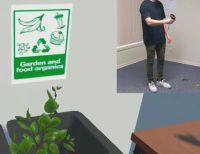04 October 2023
 A new study published today, analysing wastewater samples from several aged care and retirement homes in Adelaide, has uncovered worrying signs of antimicrobial resistance (AMR) in at least one facility.
A new study published today, analysing wastewater samples from several aged care and retirement homes in Adelaide, has uncovered worrying signs of antimicrobial resistance (AMR) in at least one facility.
High levels of bacterial resistance against three common antibiotics – ceftazidime, cefepime and ciprofloxacin – were identified in one aged care residential home. A second facility recorded above average levels of antimicrobial resistance to gentamicin, putting residents’ health at risk.
The listed antibiotics are used to treat a variety of bacterial infections, including pneumonia, gynaecological, urinary and respiratory tract infections, and those affecting bones and joints.
University of South Australia microbiologist, Associate Professor Rietie Venter, who led the study, says AMR is a concerning trend in aged care facilities.
“Antimicrobial resistance is projected to lead to 300 million deaths worldwide by 2060, and aged care residents are among the most vulnerable due to frequent, inappropriate use of medicines,” Assoc Prof Venter says.
Although the wastewater study was confined to three sites and 300 residents, the findings suggest a much wider problem, and are a clear warning to aged care facilities to implement stricter policies when it comes to medication use.
“As well as increasing death rates, AMR can lengthen illness recovery times, especially for immunocompromised people who make up a high proportion of people in aged care homes.”
Accurately monitoring the misuse and overuse of antibiotics in residential aged care homes is challenging, hence the use of wastewater-based surveillance, believed to be a first for this sector.
According to the Australian Commission on Safety and Quality in Health Care, general rates of antimicrobial resistance have not significantly changed in the past two years. However, there are exceptions to this, including increasing resistance to ceftriaxone and fluoroquinolones. Both antibiotics are widely used in aged care settings, despite clinical guidelines recommending them as ‘last resort’ drugs.
“The results of this study highlight the need for ongoing surveillance of residential aged care facilities when it comes to medication use,” Assoc Prof Venter says. “Given our ageing population, there is a crucial need to regularly monitor these facilities and mitigate the threat of AMR.”
The study is published in the latest issue of Microbiology Spectrum.
Media contact: Candy Gibson M: 0434 605 142 E: [email protected]
Researcher: Associate Professor Rietie Venter E: [email protected]

















